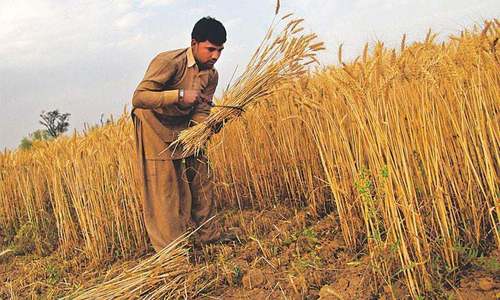
Punjab’s latest published data on provincial fiscal operations during the first five months of the current fiscal year offers a quick peep into its financial troubles in a rapidly slowing economy.
The provincial tax collection increased slightly to Rs86.3 billion, but the revenue authorities appear unlikely to meet the annual target of Rs294.9bn. The speed of development spending increased a bit in November with total public investment reaching Rs80.7bn. Yet few in the provincial planning and development department expect to meet the Annual Development Programme (ADP) target of Rs350bn.
Besides slowing its development spending, the Buzdar government is also trying to keep a tight leash on its current expenditure in view of the lower-than-projected federal transfers under the National Finance Commission (NFC) award to meet the federal obligation of producing a cash surplus of Rs233bn at the end of the year.
The increase of just 7pc in the current expenditure in the first five months of the year to Rs438.3bn from Rs407.9bn a year ago is only marginal given the growth in the infrastructure maintenance requirements and much less than headline inflation.
Earlier last week, Punjab Finance Minister Makhdum Hashim Jawan Bakhat termed the ongoing financial year the “year of (economic) growth”. Last fiscal year, he said, was the year of economic reforms and stability and the present one is the year of economic growth.
The province should focus on mobilising tax revenues to reduce its reliance on federal transfers
Coming from the finance minister of a province struggling hard to balance its income and expenditure (like the rest of the country), such statements seem to have been designed to cover up the harsh economic realities staring the people in their face for more than one and a half years.
The way things are moving in the province, the government is unlikely to meet its budgeted development and tax revenue collection targets. In fact, some insist it is unlikely to get even close to these targets. The expected shortfall in the federal transfers — both from the federal tax divisible pool and nontax revenues like profits on hydel power — is going to make matters worse.
Although the provincial government is pursuing a policy of austerity and controlling the pace of the increase in its current spending, savings are unlikely to make up for the loss of revenues to be suffered from the poor provincial tax collection and the expected shortfall in the federal transfers.
Actually, many fear that the reduction in the current budget can result in a lack of proper maintenance of economic and social infrastructure and affect public service delivery. We are already getting public complaints of solid waste scattered along streets in almost all major cities, for example.
Similarly, the huge reduction in development investment since the ascension of the PTI to power is widening the infrastructure gap. The government plans to fill the gap by roping in private capital through the public-private partnership (PPP) mode. It has already created a legal framework and infrastructure and identified projects worth Rs300bn that will be undertaken in the PPP mode.
However, private investors are not likely to respond enthusiastically — at least in the near to medium term — given the existing economic slowdown as a consequence of the stabilisation policies under the ongoing 39-month International Monetary Fund (IMF) programme, the scare created by the so-called accountability drive and a high interest rate environment.
The Buzdar administration has set itself some ambitious targets like raising development investment to Rs1 trillion, pulling 10 million people out of poverty, building 3.5m houses for 20m people and creating 6m jobs in the next five years. The attainment of these goals requires the government to grow the provincial economy by 6-7pc annually, which is not possible in the given macroeconomic conditions that have led Islamabad to project the GDP growth rate of 2.4pc for 2019-20. Additionally, the province does not have enough money to spur growth even if it wanted to and private investment is also not forthcoming.
Indeed, the PTI government had not inherited a healthy financial situation when it came to power. Nevertheless, its own performance in the last one and a half years hasn’t been ideal either. It is especially evident in the area of provincial tax collection.
The Buzdar government plans to grow its provincial revenues by 16pc by the end of its term in 2023. But the deceleration in both tax and non-tax receipts since its ascension to power reflects poorly on its performance. Punjab receives almost 80pc of its total income from the federal tax and nontax transfers.
It is widely believed that Punjab with a strong manufacturing and services base can easily double its tax collection in the medium term by widening its services tax net. This will create room for financing its development expenditure and improve social and economic infrastructure for accelerating growth to 7pc as targeted by the provincial growth strategy for 2018-23.
Unless Punjab focuses on mobilising provincial tax revenues to reduce its reliance on federal transfers, it is unlikely to meet its development targets, create jobs and alleviate poverty, particularly in the southern districts of the province.
Published in Dawn, The Business and Finance Weekly, January 13th, 2020















































